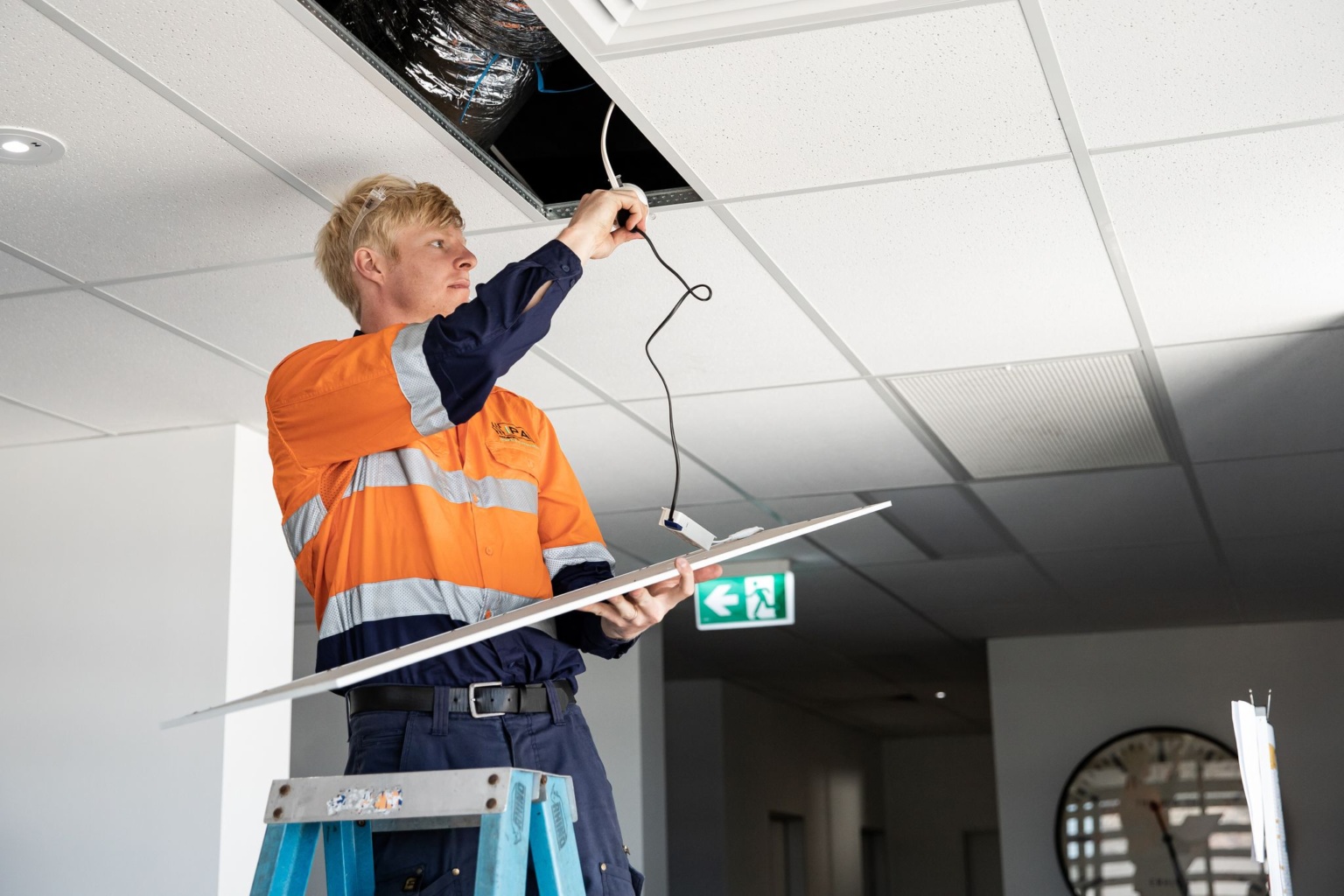This article looks at the differences and similarities between industrial vs commercial electricians.
There is a common misconception that there is no difference between an industrial electrician and a commercial electrician, however, this isn’t really true.
Every electrician ends up specialising in one area during their training. As such, employing the right one for the job can go a long way in helping you get your desired results.
With all that out the way, let’s look at each in a little more detail.
What Does a Commercial Electrician Do?
A commercial electrician specialises in providing electrical services to commercial businesses such as restaurants and retail stores. Specifically, the services involve electrical repairs/maintenance, installations and safety inspections.
Not only that, a commercial electrician can help draw diagrams or plans that satisfy the needs of a client-facing business.
Tasks of a Commercial Electrician
There are several common tasks that a commercial electrician takes care of. These include:
- Wiring of commercial buildings and electrical appliances in line with local, state and national guidelines.
- Reading and effectively using blueprints, schematics and several other technical drawings in providing electrical services.
- Ability to pinpoint technical electrical problems in a commercial building, analyse the situation and develop the most effective solution.
- Repair electrical equipment and systems.
- Install electrical appliances in a commercial building per the manufacturer’s regulations.
- Capability to test electrical equipment to determine if it is in good condition.
- Being able to supply proper documentation as regards repairs, replacement and servicing.
Skills of a Commercial Electrician
- Ability to think critically and technically as most of the duties of commercial electricians involve accurately detecting electrical issues.
- Being able to communicate properly with clients and coworkers so as to satisfy clients.
- Resourcefulness to bring up new ideas that can help solve a unique electrical fault.
- Ability to appear and work in a professional manner in line with the code of conduct for commercial electricians.
What it Takes to Become a Commercial Electrician
Specific requirements exist before a person can claim to be a commercial electrician. For a start, an individual will need to obtain a qualification in electrotechnology.
After this, they will have to acquire a minimum of 12 months of experience working in the field. Upon completing the work experience, they can apply for an electrician license and start practicing once that has been approved.
What Does an Industrial Electrician Do?
An industrial electrician is a professional that deals mainly with installing, repairing, maintaining and inspecting industrial electrical equipment such as the different parts of a hydroelectric power plant or a wind power system.
Examples of places where industrial electricians are best suited to work are mines, factories, and manufacturing plants.
Tasks of an Industrial Electrician
An industrial electrician may need to perform the following tasks:
- Repairs and proper maintenance of equipment meant for the manufacturing and production processes.
- Testing electrical devices to determine if there are any faults and how to resolve them or if there is a need for an upgrade.
- Installation of electrical outlets and other electrical appliances that are necessary for the manufacturing process.
- Cleaning/repairing and wiring electronic circuit boards.
- Setting up, servicing or repairing heavy-duty electronic equipment and industrial systems for electrical communication.
- Drawing or following a blueprint or schematic to solve a problem.
Skills of an Industrial Electrician
Some skills are essential for an industrial electrician to have. An industrial electrician should have:
- A good grasp of how different parts connected to an electrical source operate.
- The skill to analyse and detect the source of an electrical problem and provide solutions to the problem.
- The ability to work with others as a team based on strong interpersonal skills.
- Great communication skills. This demands being able to read and comprehend texts such as manuals and technical codes. It also means having what it takes to listen and speak with clarity.
- The ability to pay attention to details and avoid mistakes.
- Excellent time management skills and the capacity to organise people into groups to carry out different tasks.
- The skill to perform physically demanding tasks.
What it Takes to Become an Industrial Electrician
Before a person can work as an industrial electrician, they must undergo extensive training.
This will require seeking and applying for an electrical apprenticeship under a registered training institute which could last up to four years. Subsequently, upon completion, an individual will receive a certification in electrotechnology.
After acquiring this, you still need an electrician’s licence before you can practice.
The Difference Between Commercial and Industrial Electricians
Although industrial and commercial electricians share certain similarities, some key aspects set them apart. The differences are:
#1. Different Work Environments
Commercial electricians deal with the electrics in commercial, public-facing buildings. On the other hand, industrial electricians focus on the electrics within an industrial environment.
#2. The Tools Used
Commercial electricians make use of tools that are usually simpler and more in line with what most of us have in our homes. On the flip side, industrial electricians often use specialised tools suited to industrial electrical equipment.
#3. Voltage
Industrial electricians usually work with higher voltages.
#4. The Training Received
Industrial engineers’ training is usually more extensive than the training for commercial electricians. This is because the risks and hazards are generally more extreme than those encountered in a commercial setting.
At IPA Solutions, We Do Both
At IPA Solutions, we have a team of both commercial and industrial electrical experts who specialise in handling an extensive range of industrial and commercial electrical services.
You can contact us today, and rest assured that you will get the best electrical services no matter your industry.









